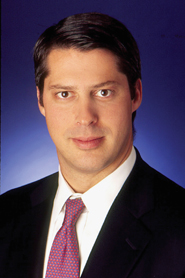In today’s ever-changing markets, the buyside is doing more in-house, and instead of looking to the sellside for technology needs, it is seeking specialized expertise from sellside partners. That was the message of buyside experts speaking on Wednesday at the TradeTech conference in New York City.
In the opening panel of the day, “Tracking the Evolution of the Buyside Trading Desk,” buysiders expressed changing expectations of what they want from the sellside. Phil DeFrancesco, head of U.S. Trading for Millennium Partners, said his firm has stopped relying on the sellside to keep up with changes in technology. Instead, it now handles most technology issues in-house.

While that can be expensive, it doesn’t have to be, according to DeFrancesco. He said the buyside will never be able to keep up with the very latest technology being used by high-frequency traders, but it can be innovative with the technology it does have, which doesn’t cost that much extra.
Instead of technology, Millenium looks for expertise from the sellside. DeFrancesco said he wants multiple points of contact, getting specific points of view from different experts, rather than dealing with a one-touch desk.
“I don’t want a jack of all trades,” DeFrancesco said. “I want the other side of the desk to know more than me. I want him to know every little thing that’s going on with my order.”
Nat Evarts, a managing director and head trader for the Americas at State Street Global Advisors, echoed many of DeFrancesco’s concerns. He said if the sellside has a technology to offer, it has to really be something new, not just a variation on an old theme.
Intelligent feedback to the sellside is almost worth its weight in gold, according to Evarts. He said the buyside spends a lot of time reading up on Greece and keeping up with China, but individuals can’t be experts in everything.
“The amount of information that you need to consume on a day-in, day-out basis, it’s just mind-blowing,” Evarts said. “It is very difficult to keep up on everything all the time.”
It is fine to have generalist coverage so long as there are specialists, too, according to Robert Karofsky, global head of equity trading at AllianceBernstein. Given the challenging conditions in the marketplace today, he said it might be time for a new paradigm. For instance, perhaps generalists need to find a way to leverage the expertise of different specialists around the globe.
James Francis, senior portfolio manager at Geode Capital Management, said as information comes in, it adds a new layer of complexity and a new layer of risk. There is also a new layer of compliance oversight, which in a smaller shop, can cause difficulties.
“The regulatory environment is always changing,” Francis said. “Our business is so heavily compliance-driven now that the technology needs to be good, and it has to be in real-time.”
Francis added that given the complexity today, there needs to be more cooperation between buyside and sellside. He said certain firms he works with can be excellent sources of information.





